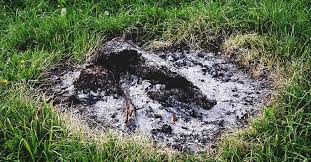Mostly your vegetable plants and fruit plants require a wide range of nutrients, and potassium is one of the most important nutrients out of the three major ones. We will see about an easy to make homemade fertilizer that can supply your plants, especially vegetable plants in your terrace garden or balcony garden with high amounts of potassium and also other vital nutrients.
Most of us generally get this fertilizer at home on a daily basis, but tend to neglect it because of not knowing its uses for plants. This is none other than wood ash. Yes, when you burn wood for any purpose, it leaves out ashes and these ashes are rich sources of nutrients for your plants.
Nutrients in wood ash which makes it a good homemade fertilizer for your garden:
Even if you don’t burn wood at home regularly, it is a very good option to burn wood just for the purpose of getting a fertilizer that enhances the flowering and fruiting of your plants. Wood ash contains a good amount of potassium and Phosphorus, which are highly essential for plant growth. Wood ash also contains micronutrients such as calcium, zinc, manganese and iron, which are essential for healthy plant growth.
Let’s see how to use this wood ash for your plants. There are 3 common ways of using wood ash for your garden. Each one has its own uses.
1. Using wood ash in compost:
Wood ash can be mixed with either your kitchen compost or your vermicomposting. If you are using wood ash along with your kitchen compost you can add a thin layer of wood ash for every 6 inches of your compost pile.
Uses of wood ash in compost:
Wood ash is alkaline in nature and thus it tends to reduce the acidity of the compost. Once the acidity is reduced, the worms can easily work on your compost and help it to decompose faster. This kind of compost that is less acidic is very suitable for mulching your vegetable plants in the garden. The compost that is made with adding wood ash to it is also richer than the general kitchen compost as they have the worm decomposed nutrients in it.
2. Using wood ash directly in your garden soil:
Most of the vegetable plants generally require a soil pH of about 6.5 to 7.0, if your soil is below 6.5, then it is highly recommended to add wood ash to the soil directly as it would balance the soil’s nature. Moreover, if you use lot’s of cattle manure in your garden soil, then it is highly useful to add wood ash, because cattle manure tends to make the soil acidic.
You can also add wood ash in your potting mix when you are potting a new plant or while repotting.
3. Adding wood ash around the plants:
Plants such as cabbage, Brussels and fruit bushes that love alkaline soil can be given a side dressing with wood ash. This also prevents club root formation in plants which is mostly common in acidic soil.
Caution - if using wood ash:
Wood ash is not to be used for acid loving plants such as berries and potatoes, especially, blueberries and raspberries need acidic soil for maximum growth and production.













